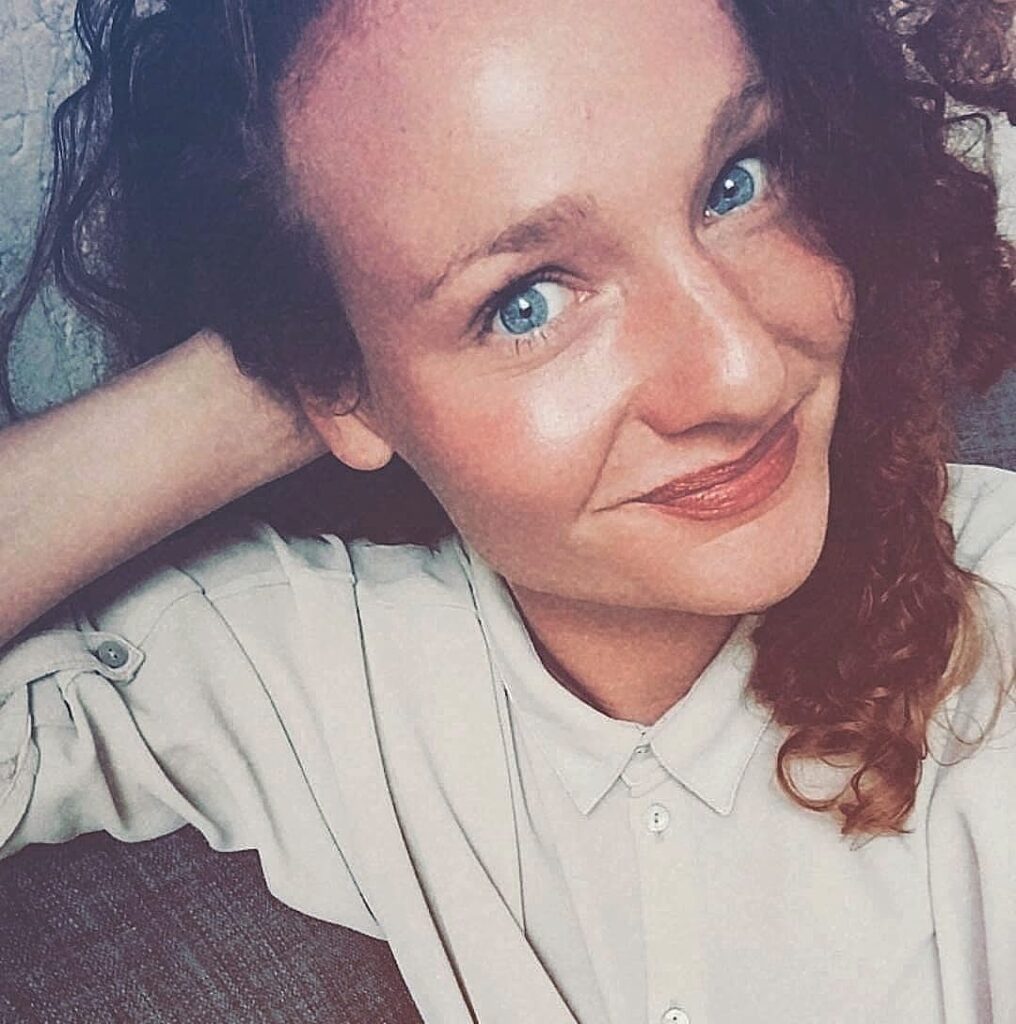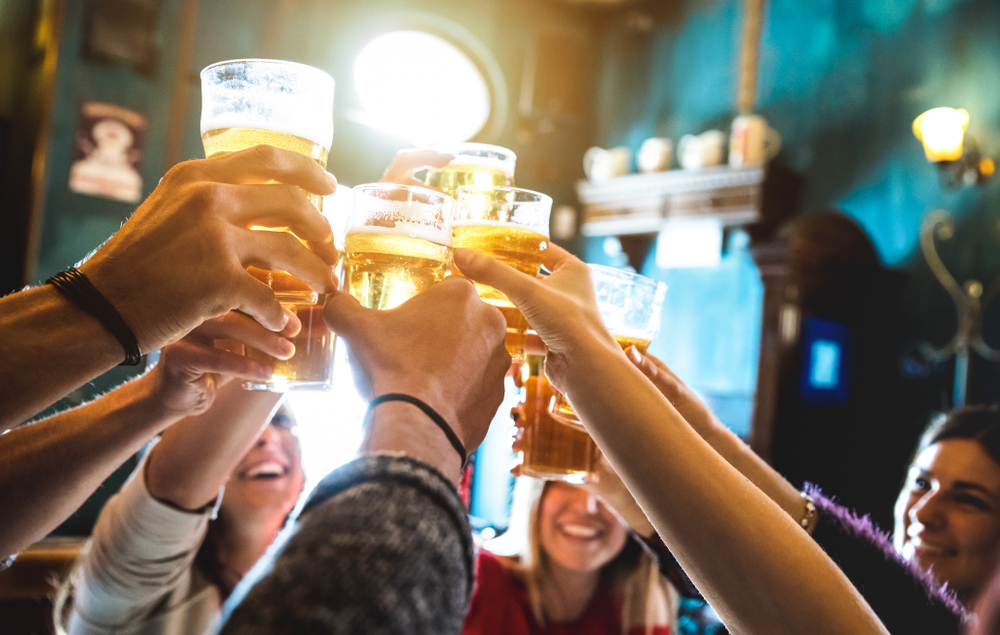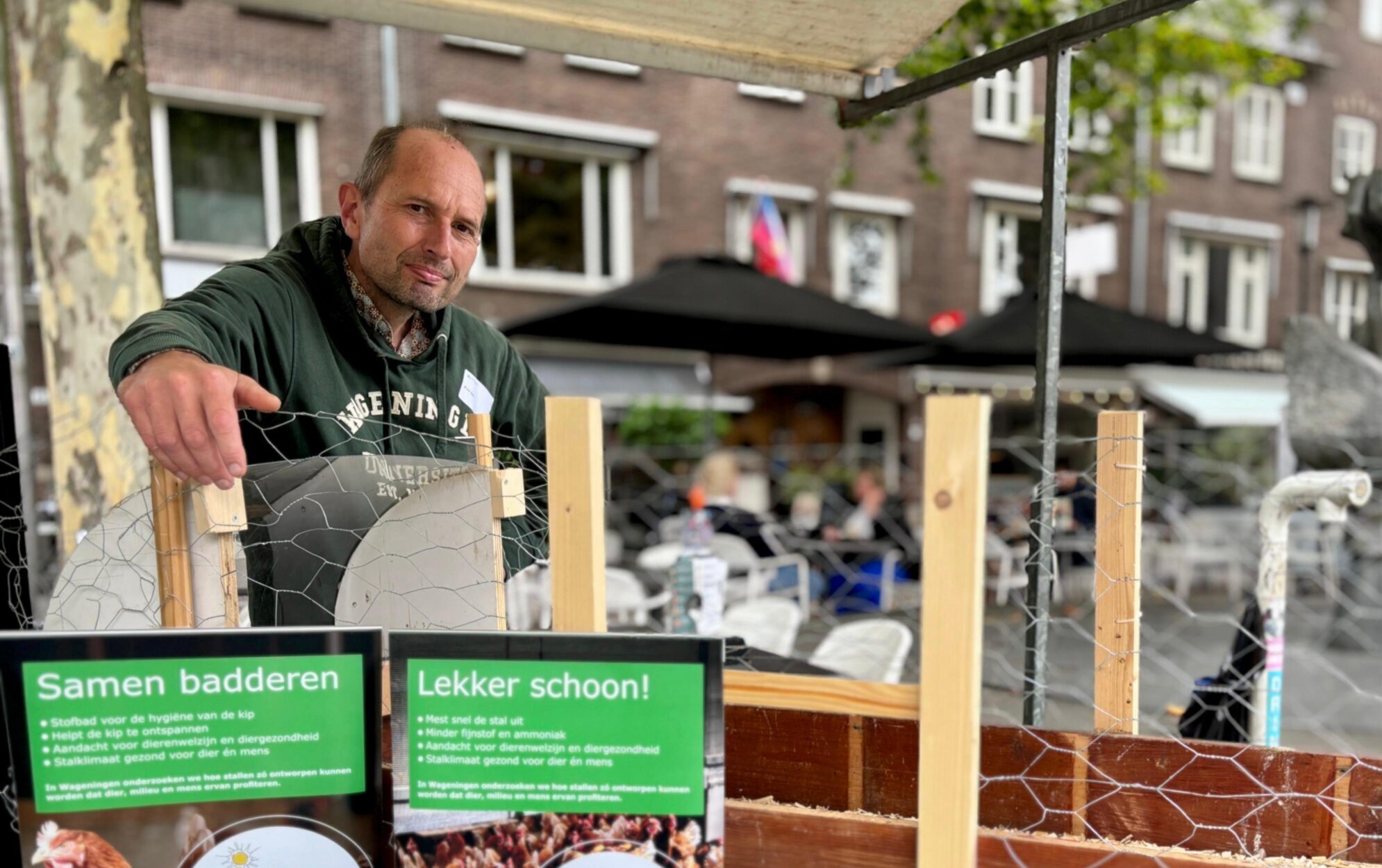Kim Schomaker (27) is a masters student of Communication, Innovation Life Sciences. She studied alcohol consumption among Wageningen students for her master’s thesis.

‘I wanted to write my thesis on something student-related. During the first lockdown, there was a survey measuring the students’ wellbeing. In this survey, 43 per cent of the students indicated they never consumed more than 6 glasses of alcohol in a row. That percentage increased to 75.5 during corona. Fewer students were drinking excessively. I thought this would be worth investigating.’
Drinking motivation
Schomaker’s research question was: To what extent has the corona outbreak affected the drinking behaviour of WUR students? ‘My literature study focused on the factors in student life that changed due to the corona outbreak. Following that, I interviewed twenty students, across a range of genders, nationalities and from both bachelor and master’s programmes.’
In her thesis, Schomaker focuses on the periods immediately before and after the start of the first lockdown. ‘I used the motivational model of alcohol use. This model assumes there are four motivations that determine whether someone decides to drink or not. Enhancement, drinking for the pleasure of being drunk; social, drinking to increase the enjoyment of a social event; conformative, drinking to conform to the group; and coping, drinking to alleviate personal anxiety and problems. I studied whether the motivations that drive students’ drinking behaviour changed in times of corona and whether this could explain the changed alcohol consumption.’
A ‘proper student’
The interviews reveal that many students perceive solitary drinking as problematic. Schomaker: ‘They feel this is not done, that it amounts to alcoholism, and they don’t see themselves as an alcoholic. Students feel that drinking belongs in a social environment. Downing ten beers by yourself is not okay, but drinking the same amount with your friends is accepted.’
Downing ten beers by yourself is not okay, but drinking the same amount with your friends is accepted
‘Such standards are often passed on from older students to the younger generation of students. The more senior students demonstrate how to drink and how to be a so-called proper student. This is reflected in the rules of some of the student associations: there, it may be prohibited to order a single beer at the bar. This teaches new students not to drink alone.’
Most of the students that were interviewed were often drunk at parties before the corona outbreak, says Schomaker. ‘They drink in order to enjoy the party, bond with fellow students and to fit in. The younger students, in particular, felt that excessive drinking is part of student life. If you aren’t hungover in Friday classes, you’re doing it wrong. As students become older, this is less extreme.’
Coping
Following the corona outbreak, more than half of the students significantly reduced their alcohol consumption; some even stopped entirely. ‘Students feel that drinking is part of student life. But, to what extent do you still feel like a student if you no longer go to campus and no longer have drinks?’ The part that continued drinking excessively after the outbreak did so out of a different motivation. Says Schomaker. ‘They reported things such as: corona is scary and strange; you must do something to make the most of it.’
Students feel that drinking is part of student life. But, to what extent do you still feel like a student if you no longer go to campus?
‘The motivation for drinking shifts towards coping: dealing with issues. This is very near problematic alcohol consumption. In this group, you often see that their drinking moments have increased in frequency, for example, to round off the day. But that they don’t drink as much on those moments as before corona. In an absolute sense, their consumption has decreased but become more frequent. It is worth mentioning that they did drink with housemates of friends but from a different motivation. Drinking alone is still not done.’
Schomaker is not afraid that the drinking students will become alcoholics later on. ‘To my knowledge, there is no research to indicate that excessive drinking among students leads to alcoholism.’

 Photo Shutterstock
Photo Shutterstock ![[Seriously?] OcSober! is forecast to be dry](https://www.resource-online.nl/app/uploads/2025/09/WEB_DeNeus.png)
